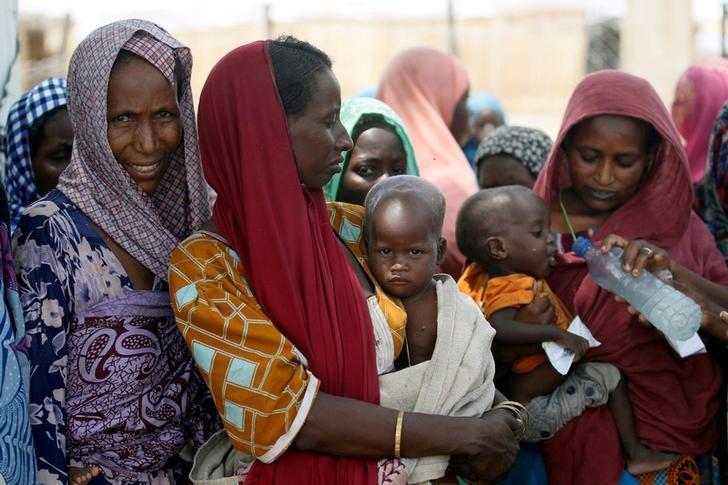
Nigeria orders thousands of refugees back to unsafe areas

Nigerian government officials have ordered thousands of displaced people to return to an unsafe area as pressure mounts to show progress in the war against Islamist groups ahead of a presidential election, according to sources familiar with the situation.
Those who have gone back say they only did so because the officials told them they would get no more aid if they remained in refugee camps. Returnees say their home area of Guzamala in the northeast is not safe and they cannot earn a living there.
At issue is the re-election of President Muhammadu Buhari, a retired general who won power in 2015 on a promise to restore security to the northeast and end the Islamist Boko Haram insurgency, now in its tenth year.
Western diplomats and aid officials have expressed concern that sending displaced people back to their home regions is part of Buhari’s political agenda, and that of the ruling party as local elections are also being held.
“Pushing these people back just to make a point when the security situation remains tenuous is a terrible idea,” one diplomat told Reuters.
The government and the election commission have met to discuss how to expedite returns as the election early next year nears, according to a person with direct knowledge of those talks.
Officials have told people their home areas are safe and they can go back to their livelihoods. That is a tempting proposition for people who have lived in camps for years, dependent on handouts.
In June, government officials told some 2,000 internally displaced persons (IDPs) living in Bakasi camp in the city of Maiduguri to go back to a town in the Guzamala region, according to interviews with returnees, a government official and others with knowledge of the matter.
“They said, ‘If you refuse to return, you are on your own, the government will not help you anymore’,” said Hassan, who, like other returnees, asked to be identified by his first name for fear of reprisals.
Guzamala is viewed by the United Nations and aid organisations as inaccessible or hard to reach. They do not deliver aid to a region under the sway of Islamic State West Africa. ISWA split from Boko Haram in 2016 and is now the bigger threat in Nigeria’s northeast, security experts believe.
Earlier this month, Islamist militants killed at least 19 people, and possibly as many as 63, in an attack on a village in Guzamala.
Foreign governments, which provide aid and military support in the northeast, successfully lobbied Nigerian officials to pause the returns to dangerous areas like Guzamala, though the programme is expected to resume after an assessment, said four people familiar with the matter.






